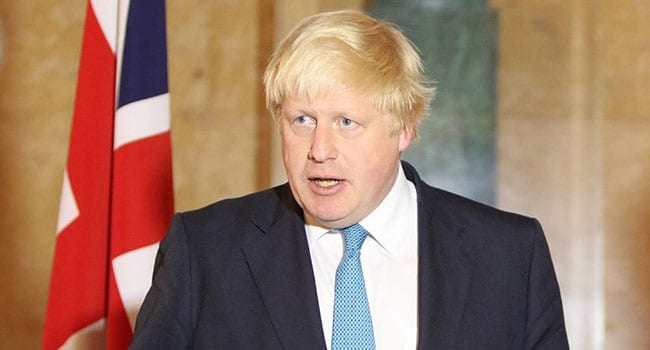 My Aug. 1 column noted the significance of Boris Johnson becoming United Kingdom prime minister. Given his key cabinet and staff appointments, he was clearly going to force Brexit resolution in a way that his predecessor, Theresa May, was either unable or unwilling to do.
My Aug. 1 column noted the significance of Boris Johnson becoming United Kingdom prime minister. Given his key cabinet and staff appointments, he was clearly going to force Brexit resolution in a way that his predecessor, Theresa May, was either unable or unwilling to do.
This shouldn’t have been a surprise.
Both May and her most powerful cabinet minister – Philip Hammond at Treasury – were Remainers. In other words, they’d opposed the U.K. leaving the European Union (EU). So an aggressive pursuit of Brexit wasn’t the kind of thing that would’ve naturally appealed to them.
Johnson, in contrast, was a leader of the Leave campaign. And while some questioned his true level of commitment, he publicly nailed his colours to the mast.
In delivering on his promise to “get Brexit done,” Johnson faced two major problems.
One was that the EU insisted it wouldn’t reopen the departure deal it had struck with May. Parliament may have repeatedly rejected that deal as too much for some and too little for others, but it was the EU’s final offer.
The other problem was that the majority of parliamentarians didn’t really want Brexit.
Having agreed to respect the 2016 referendum result, there was a lopsided parliamentary margin in favour of triggering the process of withdrawing from the EU. And both major parties had fought the 2017 general election on the premise that Brexit would become a reality.
But the parliamentary majority was still Remain at heart. Consequently, anything that smacked of hard-nosed negotiation was deemed too risky and thus off-limits.
Understanding the Brexit conundrum requires grasping something fundamental. It was largely a bottom-up movement that caught the establishment by surprise. Most of the power structure – political, financial, media and academic – loathes it. And this colours the public narrative, particularly as it’s reported here in North America.
Back in the summer, the conventional wisdom held that the EU would refuse Johnson’s demand to reopen the previously negotiated withdrawal agreement. After all, the EU had said so and it held most of the cards.
But the agreement was reopened and a new deal was struck.
Nick Timothy, May’s former adviser, ascribes this to Johnson’s aggressive stance. In his assessment, European officials came to believe that – notwithstanding parliamentary opposition – Johnson was determined to take the United Kingdom out of the EU, even if that meant leaving without a deal.
Timothy was summarily dismissed following the disappointing 2017 election result and thus surely has a bone to pick with his former boss. Still, his acerbic bottom line resonates: “Unfortunately, when Theresa was confronted by European intransigence, she folded faster than a Brompton bicycle.”
(For the uninitiated – which included me until I looked it up – a Brompton bicycle is a small urban-friendly bike that reputedly can be folded in half in 20 seconds.)
Critics argue that Johnson’s deal is really nothing new. It is, so the argument goes, 95 per cent similar to May’s rejected one.
Perhaps.
But there are critical differences. The infamous backstop – which could have kept the entire U.K. in an indefinite customs union with the EU – is gone. And the United Kingdom’s future ability to go its own way in terms of regulation and trade agreements is greater.
However, that doesn’t resolve Johnson’s problem with the current parliament’s underlying antipathy to Brexit. If he’s to be sure of getting his renegotiated agreement safely through the approval process, he needs to change parliament’s composition. The Dec. 12 general election provides the opportunity to do that.
Of course, there’s no guarantee of success. Johnson could wind up with a minority situation similar to the current one. Or he could lose power entirely, in which case it’s fair to surmise that anything resembling Brexit will bite the dust.
So far, though, Johnson must find the polls moderately encouraging.
The most recent half-dozen put his Conservatives anywhere from seven to 16 points ahead of Labour. By way of comparison, May’s actual margin in 2017 – which produced a minority Conservative government – was just a bit over two points.
Polls, mind you, can be notoriously volatile. Campaigns matter, as May discovered last time – her early overwhelming lead almost melted away.
There’s also the issue of a splintered political environment replete with organized efforts to spur tactical voting, not to mention a new hardline pro-Brexit party that believes Johnson has conceded too much.
The endgame beckons.
Troy Media columnist Pat Murphy casts a history buff’s eye at the goings-on in our world. Never cynical – well perhaps a little bit.
The views, opinions and positions expressed by columnists and contributors are the author’s alone. They do not inherently or expressly reflect the views, opinions and/or positions of our publication.

